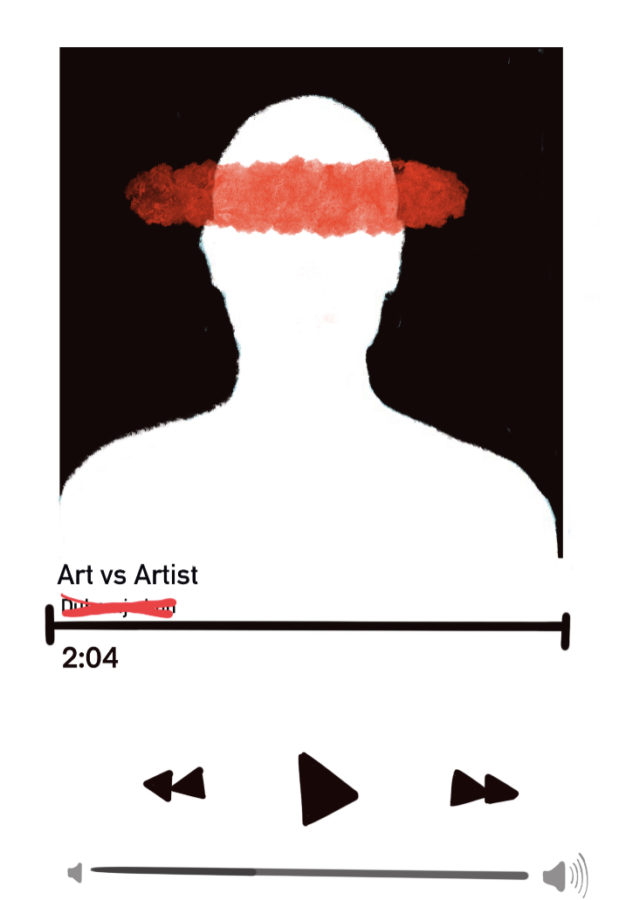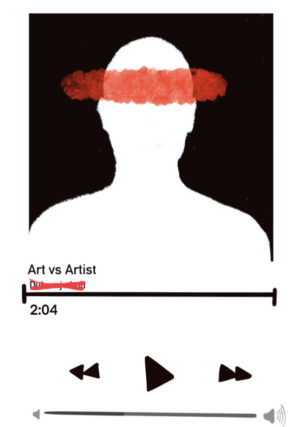Yes.
Should we be supporting the art if we do not want to support the artist?
March 29, 2023
In this new age of social media influence, cancel culture, and Covid-19, society is filled with contradictions about the ethical standings of our decisions as a whole. Recently, popular conversation surrounds cancel culture and how we should deal with problematic artists and their work. While many stay neutral, there are still others who suggest we should completely boycott a canceled artist’s work. I’m here to say that we should take a different approach, and stop thinking so much.
If I walked into an art class one day and told the teacher that they should never use Picasso’s work or teach about it because of how horrible of a man he was, from how he emotionally abused women, do you think they would listen?, do you think they would comply? Absolutely not. Some teachers may think it over, but at the end of the day, who cares how ‘unethical’ it is to enjoy and appreciate literal beauty and history. Picasso may have not been a good person, but why is mine or your job to chastise him for it by not observing his masterpieces?
Many other extraordinaires and geniuses, like John Lennon, Dr. Suess, Mark Zuckerberg, etc., are known for both their extraordinary work and problematic personalities that caused a multitude of controversies. However, despite their pasts, nobody can deny the importance of their work and its societal impact. Even people who despise them still listen to their songs, read classic childhood stories to their children and go on Facebook or Instagram.
The truth is, we as people will never be able to be ethically correct in a society that was built on top of unethical bones. We’re selfish at heart, and unless personally offended, we usually would not stop supporting or enjoying content created by a problematic artist. It’s not an excuse, it’s our reality.
Which brings up the topic of ethicality. Can supporting the art create an ethical problem? Am I a bad person if I decide to keep a song on my playlist? Am I an anti-semitic, trump-loving, racist and taylor-swift hating person just because I decide to enjoy a Kanye song on my playlist? Absolutely not. If we were to stop enjoying a form of art because the artist is problematic, this exposes many concerns regarding the morality of others. Many pieces of classic literature, revolutionary philosophies, iconic music and timeless movies would all be completely disregarded if we were to go through and judge them based on their creators alone.
While art should be judged solely on its quality, a person should not be praised merely for their work. Many artists and creators can be extremely creative and revolutionary, but that should not automatically mean that they are genuinely good people. For example, we use revolutionary ideas from many philosophers and scientists every day. Charles Darwin’s theory on natural selection is a foundational topic in the science classroom. But what we do not hear as often is his racist pasts and how his ideas were used to exclude people of color from our future. However, regardless of his racial prejudices, his ideas were revolutionary. His studies helped countless people and were used for the better of society. It does not disregard his racist actions, and he should have still been held accountable, but it does not mean the world could not try and benefit from his teachings. If we were to all of a sudden stop using content from all problematic creators, the world as we know it wouldn’t exist.
On top of that, there are still so many ways people can enjoy art without supporting, promoting or funding the artist. People do it all the time by buying things second hand, or enjoying media from indirect sources that do not financially support the creators. On top of that, promoting artists is just as easy as not promoting them; simply don’t post their content or influence people to go and buy said artists’ products. Don’t want to fund your favorite romance writer because she’s problematic, go to half priced books. If it matters enough, you can take steps to change while still holding onto your joy.
When supporting the art, you can choose not to support the artist. It should not be considered an excuse or seen as unethical. As people, we make choices every day based on our moral compass. But we also need to stay realistic. If it’s your favorite song, you should not have to stop listening to it. If you came up to my face and told me one problematic behavior each of my favorite singers has, I would laugh at your face and keep listening to them. It’s not that deep, I just refuse to change my lifestyle just to feel like I’m a good person. If you enjoy the meaning of the lyrics, who is stopping you from letting them inspire you? Content is simply put out into the world for others to take and make something out of. Having a creator’s background attached to it would make most motivation and creations in the world disappear completely. Ultimately, you can use a problematic person’s work and turn it into something beautiful that the world can thank you for.



